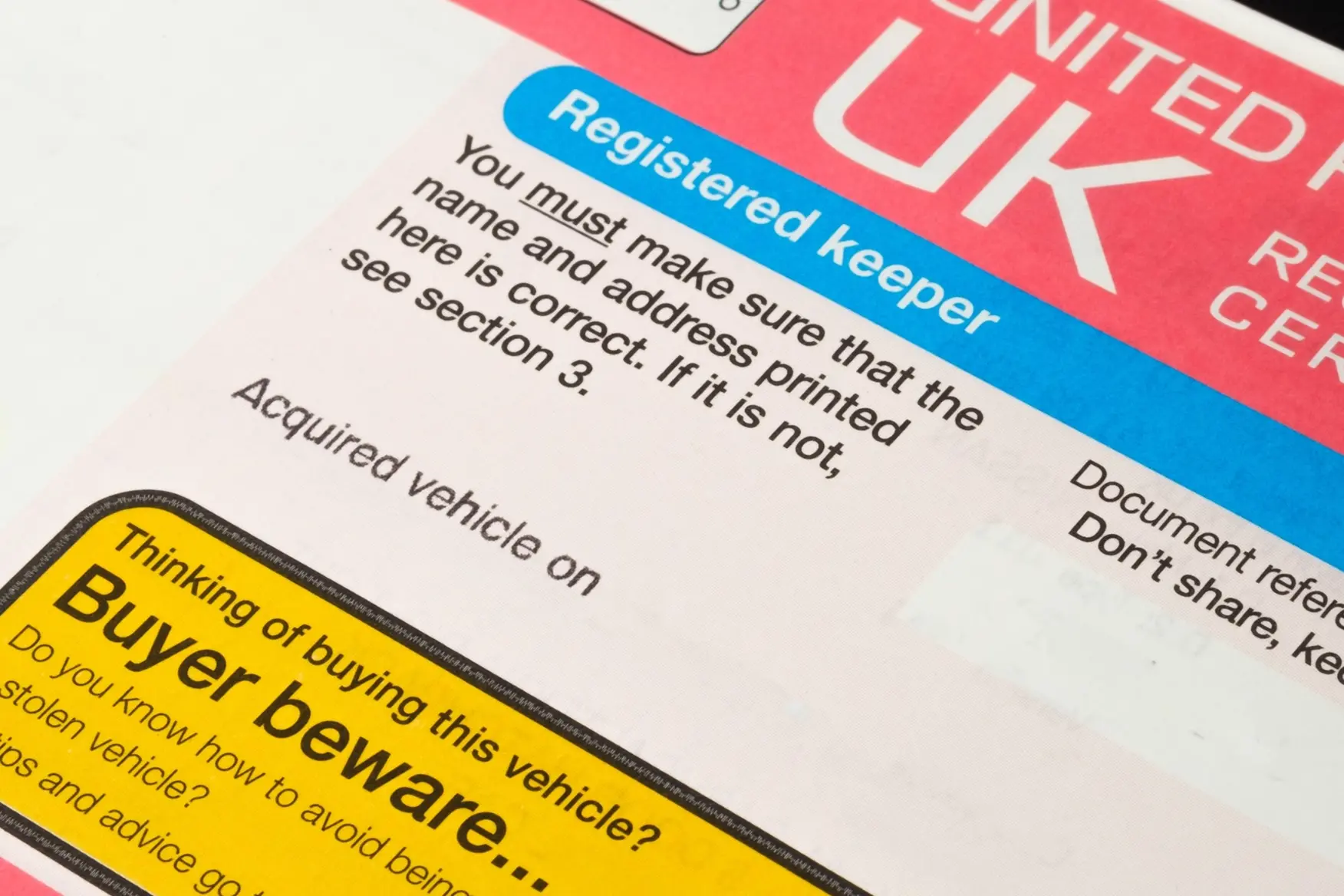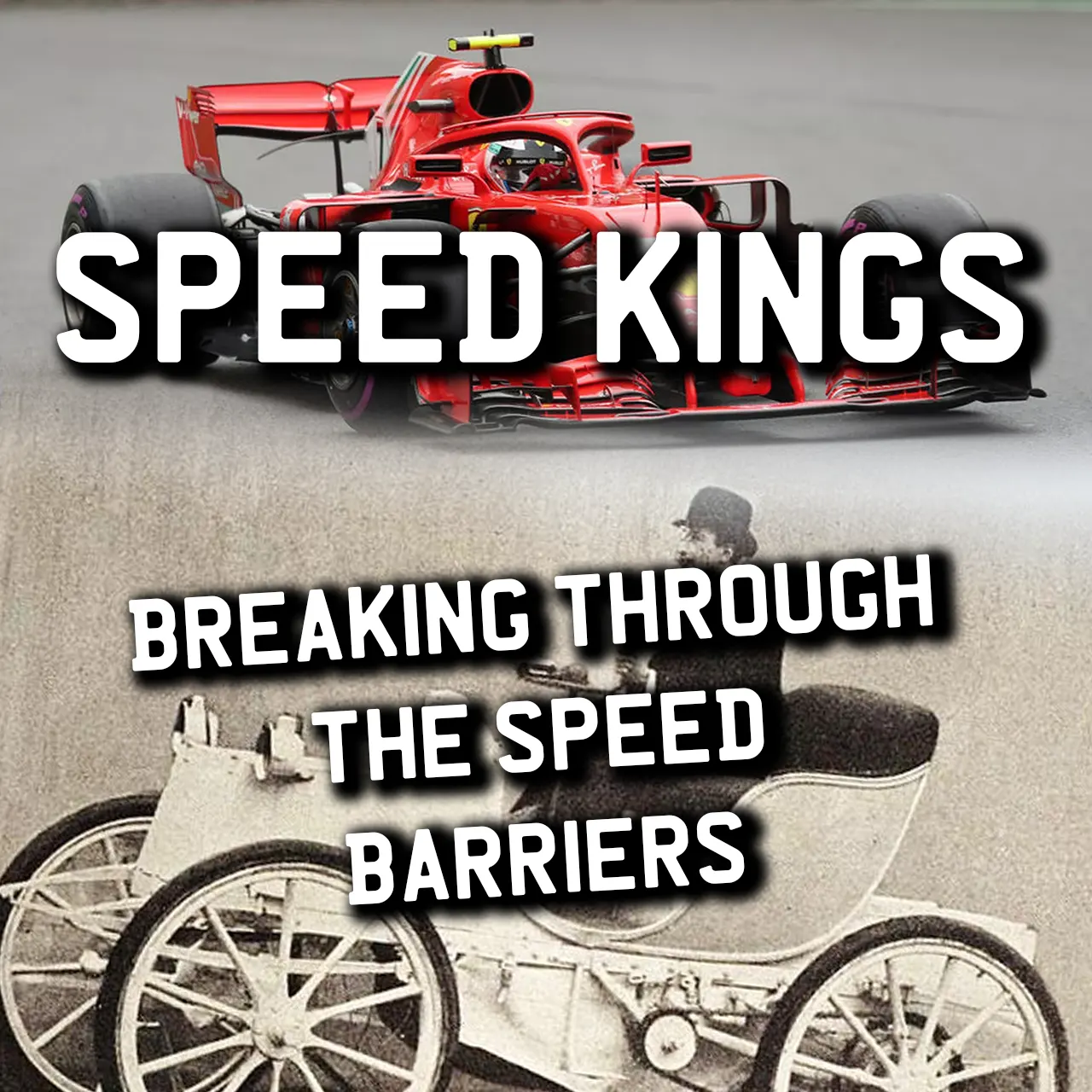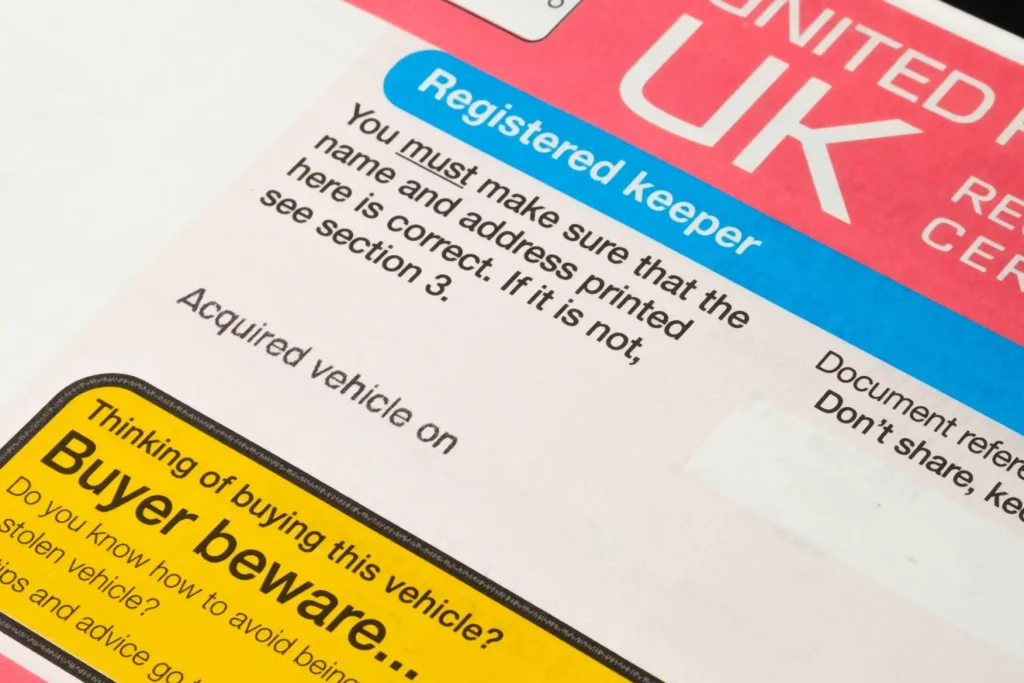
Personalised registration numbers, often referred to as private plates or cherished plates, are an easy way to add a little flair to your vehicle. A “private” registration can be bought from DVLA or from companies registered with DVLA to buy & sell registration numbers. They often sell for as little as £70, and many valuable registrations can sell for millions.
The terms “personalised”, “cherished”, and “private” seem to have different origins, but they all mean the same thing. A personalised number is a number that you buy yourself and assign to the vehicle, as opposed to the standard one that came with the vehicle.
Sometimes these terms can cause confusion over how vehicle registration in the UK works, so for the avoidance of doubt: no, you cannot create your own number and register it.
Brief history of vehicle registration in the UK
Every vehicle must have a registration number assigned to it. When a new vehicle is built, an application to DVLA is made to have a registration number given to the vehicle.
Normally the dealer will do this, but you can do it yourself if needed (for example if you build a kit car). The cost is £55.
In 1903 the Motor Car Act was established to regulate vehicles on the roads. In the early days of automobile history, local authorities were responsible for registering new vehicles. The act required all vehicles to display a registration number and its purpose was to keep track of vehicles and impose road taxes.
In 1932 a new numbering system was introduced that required numbers to follow a specific format of 2 letters followed by a space, followed by up to 4 numbers.
By the 1960s, local authorities started running out of available combinations and yet another numbering system was created in 1963.
Later in 1965, the Driver and Vehicle Licensing Centre (DVLC) was established in Swansea to take over responsibility for vehicle registration. It was renamed Driver and Vehicle Licensing Agency (DVLA) in 1990. DVLA is an executive branch of the Department for Transport.
All vehicles are kept on a database of motor vehicles maintained by DVLA. Anyone can access the vehicle register if they have “reasonable cause”, such as tracing the owner of an abandoned vehicle parked on your property.
Customise your gel number plates
Build unique number plates with our intuitive and fully interactive number plate builder.
Build Gel Number Plates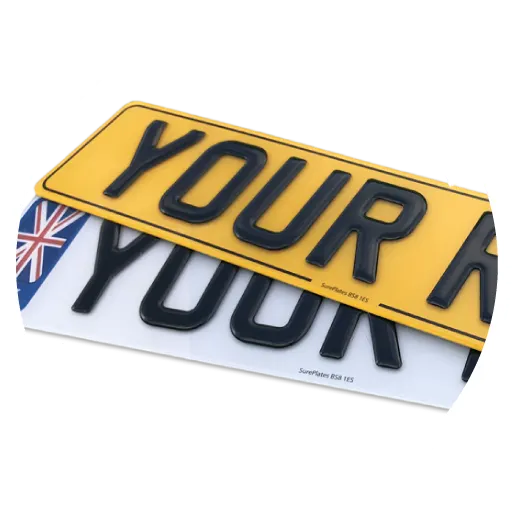
What is a personalised registration number?
When you buy a new number for your vehicle, you are buying a “personalised” or “private” number. This contrasts with the standard number issued to the vehicle when it was registered. Any person or company who owns a private number can sell it or give it away.
Each year the DVLA generates new registrations based on the current format (2 letters, 2 numbers, 3 random letters). Any numbers that don’t get assigned to a vehicle are kept in the database. The unissued stock is made available to businesses who can sell them on the private market and make a profit. Registered businesses can sell them for whatever they like. When a sale is made, DVLA charges an £80 transfer fee. DVLA also sells its own registration numbers and holds auctions on valuable numbers.
The industry is very lucrative with DVLA themselves having sold over 6 million registrations worth £2 billion across 30 years. The agency has approx. 60 million registrations for sale on its website. In 2018 DVLA brought in £116m in sales, most of which was sales of cheap registrations priced at £250.
Current-format registrations are generally cheap as there are tens of millions of unissued numbers in the database, while older numbers are more expensive. The oldest numbers are short and rare, often making them extremely expensive.
Further Reading
You may also be interested in: Breaking Barriers – The Speed Records that Shook the World
Types of personalised registrations
Registration numbers are categorised into 4 main groups:
Dateless numbers. These are the original numbers issued by local authorities between 1903 and 1962. They are the oldest numbers available and are generally expensive. They conceal the age of the vehicle and are sought after because they can be placed on a vehicle of any age.
Suffix series. The suffix series of numbers was issued between 1963 and 1983 consisting of 3 letters, a space, followed by up to 3 numbers and a final letter (the suffix) that indicates the vehicle age. The suffix A indicates 1963, B is 1964, C is 1965, etc. The letters I, O, Q, U, and Z are not used for suffixes. Z and I were reserved for Northern Ireland. O and U weren’t used because they were easily confused for Q and V. Q is reserved for vehicles where the age or identity is unknown.
Prefix series. Prefix numbers were issued between 1983 and 2001. They consist of a single letter (the prefix) followed by up to 3 numbers, a space, and 3 more letters. The prefix A indicates 1983, B is 1984, C is 1985, etc. Again, the letters I, O, Q, U, and Z are not used for prefixes.
Current series. The current series started in 2001 and is made up of 2 letters, 2 numbers, a space, followed by 3 random letters. The first 2 letters are an area code identifier and tell you where the vehicle was registered. The 2 numbers identify the year the vehicle was registered. The final 3 characters are random.
Because the suffix, prefix, and current series numbers have age identifiers, you cannot assign those numbers to a vehicle that is older than the number. This would make the vehicle look newer than it is, which is illegal.
Customise your 3D number plates
Build unique number plates with our intuitive and fully interactive number plate builder.
Build Your 3D Number Plates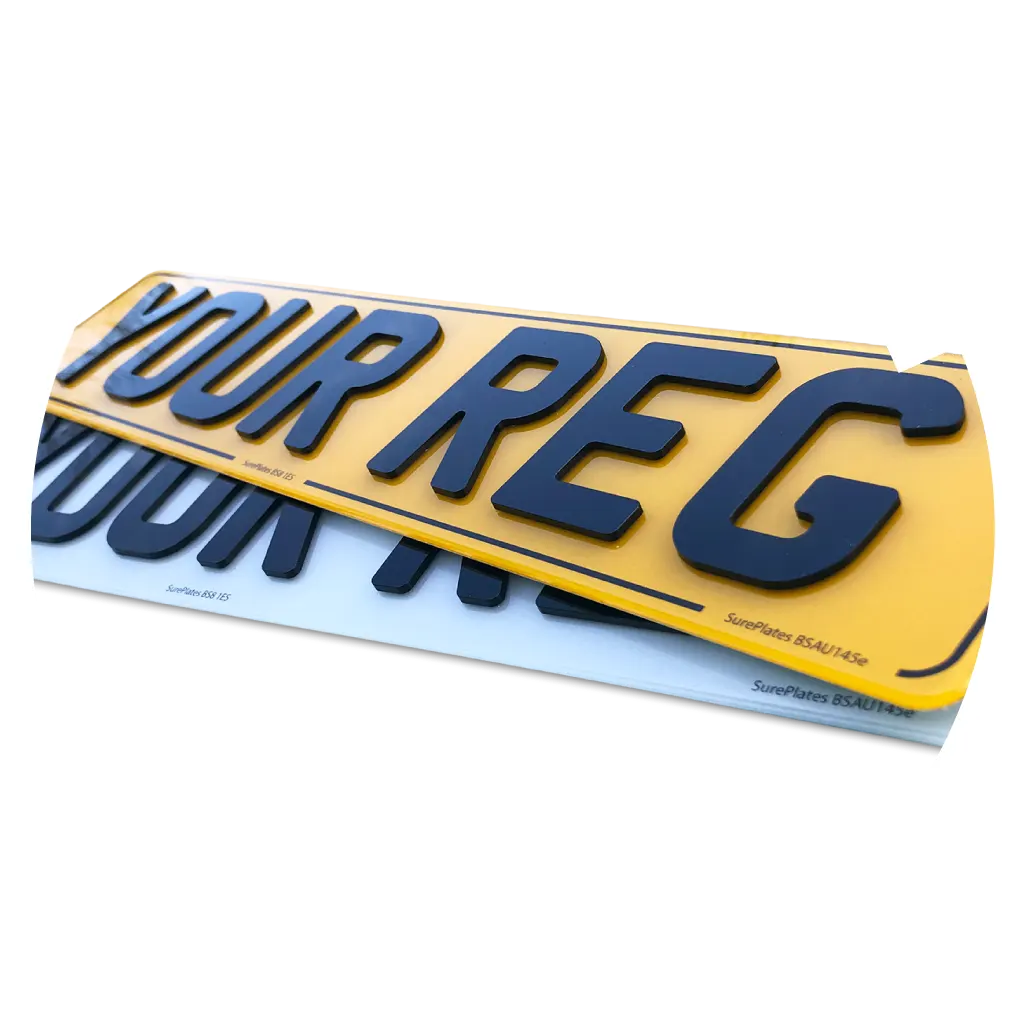
How to get a personalised registration number
All registration numbers are controlled and administered by DVLA, so ultimately no matter where you buy your number from, DVLA will be involved in the pipeline.
There are several ways to obtain a private number, including:
Buy direct from DVLA website and live auctions
Several times per year DVLA will hold an auction where they sell the more valuable registration numbers. The average price of these numbers is in the thousands as the numbers are limited with around 2500 numbers per auction.
Auctions are held both online and in physical locations around the country.
If auctions aren’t your thing and you just want to browse the available registrations, the database of numbers is searchable. There are almost 60 million numbers in the database, most of which are cheap current series numbers.
Buy from a cherished number dealer
DVLA operates a Cherished Number Dealer program where private businesses can gain access to the DVLA database and sell their registrations. You may be able to buy the same number cheaper from a private business than from DVLA. You may also be able to acquire the same number cheaper from one business than another, as they all ultimately come from the same source.
Businesses can sell the numbers for whatever price they want to and profit from the sale. DVLA charges an £80 transfer fee whether you buy direct from DVLA or buy from a CND, so this will always be added to the total sale price.
Companies who deal in registrations will often have their own private stock of numbers that they have acquired. Those will mostly be higher value numbers, and as they’re exclusive they won’t be available anywhere else.
Other ways to get a cherished number
If you can’t find what you’re looking for in DVLA auctions or in their database, or from a CND, you may still be able to get a number that suits you. Here’s a few methods that may work:
- Reach out to the owner personally. It may be a longshot, but if you see a registration you like you may be able to contact the owner directly with an offer. You may be able to get their contact details by making a request for information to DVLA (https://www.gov.uk/request-information-from-dvla).
- Create ads in relevant groups, forums, and communities where people trading registrations are active. It’s another longshot but you may make some worthwhile contacts along the way.
- Contact DVLA directly about a specific number. Sometimes a valid number may not be available for sale and may not appear in the database because it’s owned by someone. It may not be available from CNDs either, but you may be able to contact DVLA directly and ask for any information on the number and as above, possibly get the owners contact details to make them an offer.
Benefits of having a personalised number
People buy private numbers for many reasons, and while some numbers can be extremely expensive, others are available at reasonable prices. Current format reg numbers may be available for as little as £70. Here are some of the main benefits of a cherished number.
Personalising your vehicle
It’s a small thing, but having your initials or a number that closely resembles your name can make a big difference to your vehicle’s aesthetics. Adding a little flair with a plate that has your initials on can also help others like friends and family find your car more easily.
Concealing the age of the vehicle
If you can get your hands on a dateless number (those numbers were issued between 1903 and 1962) you can hide the age of your vehicle. Of course, anyone who knows the model of your vehicle will know the approximate age but for most onlookers, they won’t know how old your car is.
Profit
Some numbers are particularly valuable and if you can find a unique registration, its value may go up in time. Some numbers may closely resemble your name, or the name of your vehicle which gives them value to others as well. Holding on to it for a few years could be profitable.
FAQs on Personalised Registration Numbers and Vehicle Registration in the UK
Q: Can you create your own reg number?
A: No, you cannot. You can only buy DVLA registrations (whether through DVLA directly or a Cherished Number Dealer).
Q: How much are private numbers?
A: This varies widely. Current series numbers with no particular value can be bought for as little as £70, while others can fetch hundreds of thousands of pounds. Some numbers have sold for as much as £1 million.
Q: Why is there a DVLA transfer fee if I buy from a private business?
A: When a private business sells a number (even if they own it privately), the number has to be transferred to the new vehicle. The transfer is handled by DVLA and the fee is £80. DVLA is always ultimately involved with the sale of registration numbers.
Summary
Cherished plates are an easy way to personalise your vehicle and add some flair. You can buy cheap private numbers from DVLA or Cherished Number Dealers, and may find one that looks similar to your name or contains your initials.
The vehicle registration system has gone through lots of changes over the years. For over half a century local authorities were responsible for controlling and issuing new numbers. DVLA (formerly known as DVLC) was established to centralise the management of vehicle registration and registration numbers.
There are 4 main groups of numbers available: dateless, prefix, suffix, and current series. Dateless plates can go on a car of any age, but the others may not. You cannot make a car look newer than it is by placing a newer registration on it.
Don’t forget to shop around. Some CNDs may have the same registration available for a better price.
